11th March 2022
This weeks spelling focus on the suffix ful/less. We will be including both suffixes in our test next week.
though/ful/less
care/ful/less
harm/ful/less
use/ful/less
hopeful/less
rest/ful/less
fear/ful/less
fear/ful/less
doubt/ful/less
Year 4 have had a very busy week!
We have had a fantastic week of learning in Year 4!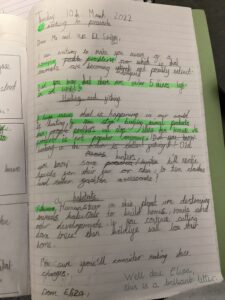
In writing we learnt about the features of good persuasive writing. We then wrote some brilliant pieces of persuasive writing about why people should change their actions to prevent animal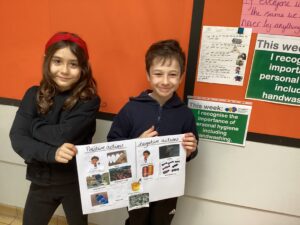 species from becoming extinct.
species from becoming extinct.
As our living and learning has been based on personal hygiene, we thought about the importance of oral hygiene and considered everyday actions and the impact that these can have on our teeth.
11 March 2022
This week’s Talk Time poses a moral dilemma and makes links to our current computing topic.
Playing computer games is bad for your health.
We suggest approaching this Talk Time with an open mind. You may already have strong views on this but it’s important to consider both sides of an argument before reaching your conclusions.
Check out these R2s to help you with your discussions at home:
- What are the health benefits of playing computer games?
- Remember that mental health is crucial to being a healthy person.
- How does playing computer games negatively impact on your health?
- How could this impact on your physical health?
- Is gaming always an enjoyable experience?
- Decide which argument is the strongest.
- This might be the side with the most points to back it up.
- You might consider some points to be more important than others.
- You may not agree with people you speak to – that’s okay!
After the discussion with friends and family, what conclusion do you reach? Do others around you agree?
Year 2 maths : multiplication and division
The year 2s have begun to learn about multiplication and division and are loving it! We use real objects and pictures, linking this to calculations. Talk about what each number represents in a calculation.


Help at home by encouraging your child to play on Times Tables Rockstars and watch BBC Supermovers videos.
Living and Learning: health and prevention and Science
Our Science and Living and Learning lessons have been all about microbes, handwashing, health and preventing illness this week.
In Science, we have talked about how microbes can be harmful but also how some can be good for us. We made microbes out of play-dough deciding whether they were virus, fungi and bacteria.

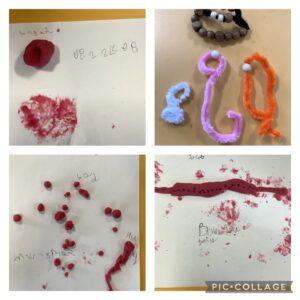
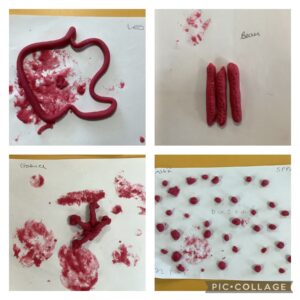

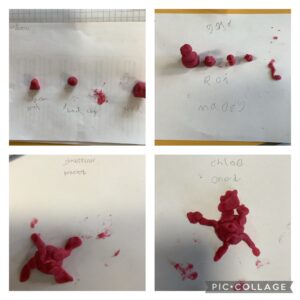
Washing our hands is really important. All the children could all talk about this, with our experiences of Covid-19!
Maths fluency – new app
The children have been using a new app we have on the iPads called White Rose 1 minute maths (it’s free to download).
This is a fantastic app to use alongside Numbots in order to support your child with their maths fluency – knowing number facts instantly.
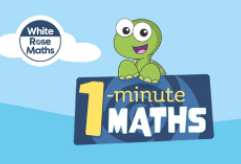
Topic – computing
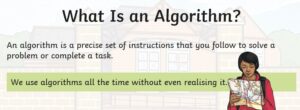
We are going to be playing, and making, lots of online and offline games. As this is a computing topic, we’ll be using a range of technology including Bee-Bots and iPads.
Here is a lost of some of the vocabulary that will be taught in the coming weeks.
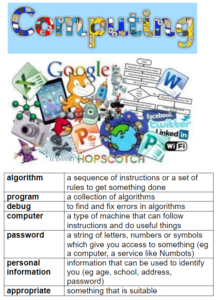
World Book Day!
We really enjoyed celebrating world book day. The children and teachers dressed as their favourite characters and spent time discussing their favourite books and authors.
In year 4 we also learnt about the history of World Book Day and how it celebrates a love of reading all over the country! 
What a busy week!
Year 3 have had a very busy week indeed. From relaxing yoga to a magical World Book Day, we’ve had the lot!
Maths
We had been looking at arrays in our maths lessons.
What is an array? An array is a way of representing multiplication facts in a diagram or picture. It is always rectangular and made up of rows and columns. There are 2 rows of apples and 4 apples in each row.
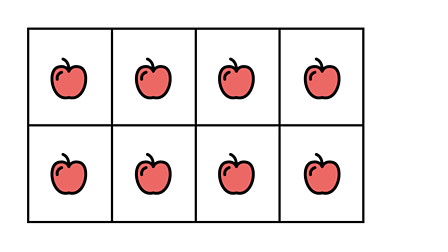
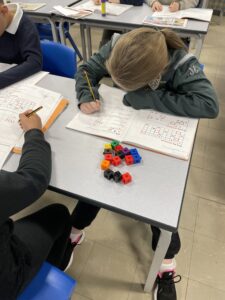
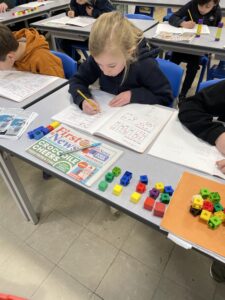
Help your child to spot arrays. Can your child record as a multiplication sentence and by using repeated addition?


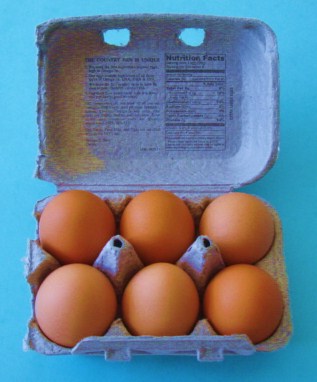

Yoga
This half term the children are focusing on different relaxation activities. First was some yoga followed by a ten minute mindfulness relaxation exercise. Well done Year 3!
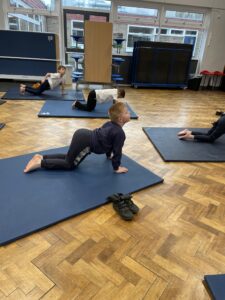
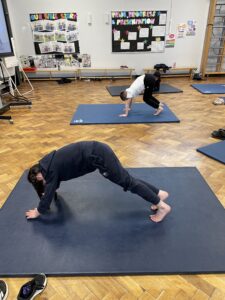

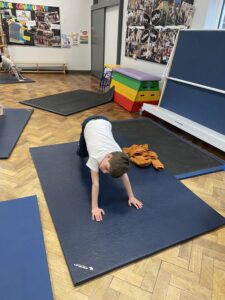
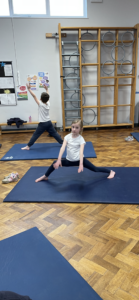
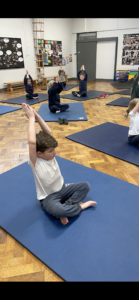
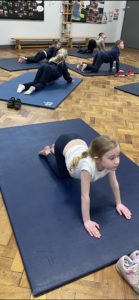
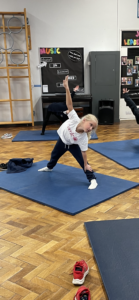
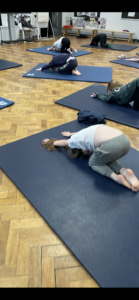
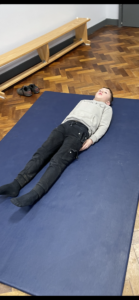
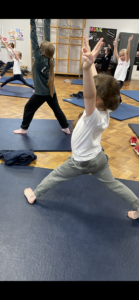
World Book Day
Teaching Harry Potter, Queen of Hearts and Where’s Wally was an absolute pleasure on Thursday. There were some fabulous costumes and a great day was had by all.
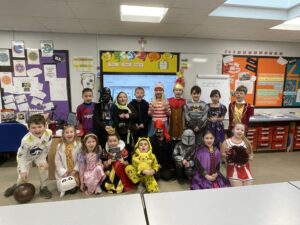

This week’s bible story
The Unforgiving Servant: Matthew 18: 21-35
Have you ever broken anything? It could be a toy or a plate from the kitchen or even a bone in your body. Some things that are broken cannot be mended, but it is often possible to mend things that we have broken. If we care for our environment, it is a very good idea to try to mend things rather than always throwing them away and then buying new things. For example, what might use to mend the following things if they were broken: a hole in the toe of my socks? a ripped page in a book? a handle that has come off a mug? a puncture in my bike tyre? a cut finger?
What could you do about mending a broken friendship?
When you fall out with one of your friends, you can’t mend that friendship with a needle and thread, or some sellotape, or superglue or a puncture kit or a sticking plaster. Read the story about the Unforgiving Servant.
Jesus explained to his friend Peter that God is like the king in the story: Christians believe God forgives us every time we tell him we are sorry for the wrong things we have done, and he wants us to treat our friends in a similar way – forgiving them each time they say ‘sorry’ to us.
Reflection:
What would you say was the key word in that story? The key word could be ‘forgiveness’.
Have a think about these questions:
‘What does it mean to forgive someone?’ (KS2) or ‘What kind of things do you need to say sorry for? (KS1).
At the end of the Bible story Jesus tells us that, if we have done something wrong, we need to say sorry to God and then he will forgive us. In a similar way, if you have fallen out with a friend, two things often need to happen: if you know you have done something wrong or upset someone, you need to be brave enough to say sorry to that person. The person to whom you have said sorry then needs to forgive you.
So, going back to the questions at the beginning of the assembly:
What might I use to mend a broken friendship? A good answer to this question would be ‘forgiveness’.
Prayer
Dear Lord,
Thank you for today’s Bible story about forgiveness.
Thank you that if we say sorry to you, you give us a fresh start.
Please help us to be forgiving people here in this school.
Amen.